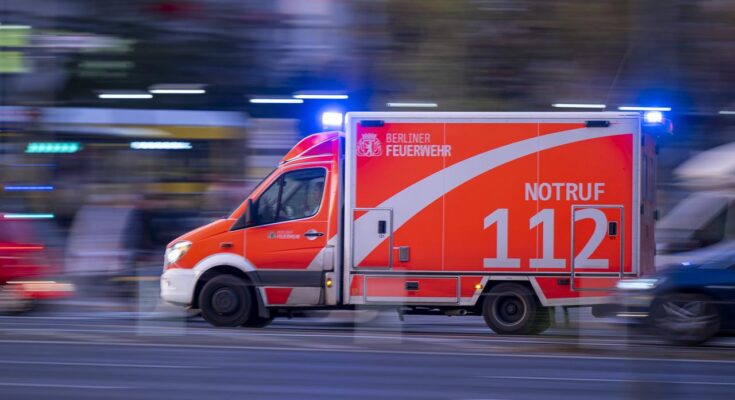Whether someone survives a heart attack also depends on where they live. The Federal Ministry of Health wants to standardize emergency care and ease the burden on control centers. But experts doubt its success.
The Federal Ministry of Health under the leadership of Nina Warken (CDU) has submitted a draft law to reform emergency care to a departmental vote. Control centers should be technically better equipped, emergency services should be streamlined and national quality standards should be developed. The agreed draft will be submitted to cabinet in early 2026.
So far, the federal government has had little influence on the quality of emergency services in the states. At issue is how quickly an ambulance must be on the scene if a heart attack occurs or what standards are adhered to. This has serious consequences.
This is what the ministry is planning
One of the drivers to influence quality in a country is the social security code. The federal government wants to create incentives: In the future, statutory health insurance companies will now also pay for emergency medical rescue and patient care at locations other than transportation. It can also provide a better technical equipment control center, as digital systems are a prerequisite for this.
Emergency services should also be facilitated through the so-called health control system. Emergency numbers 112 and 116117 must be connected. This means less critical cases can be referred to on-call medical services, while rescue workers remain free to treat life-threatening emergencies. These control centers are legally required to have a digital and standardized emergency call answering system. This allows life-threatening emergencies to be identified more quickly and reliably.
That’s how good emergency rescue at your location can be
That SWR documented major shortfalls in emergency rescues last year. In an emergency, the chances of survival in Germany vary greatly from region to region because scientifically recognized standards are not met. The result: thousands of people died of heart attacks. This is demonstrated by national investigative research SWR in ARD-Documentary “Emergency rescue – when help fails”. You can find out how good your local emergency rescue service is online at notfallrettung.swr.de.
Reform does not apply to everyone
However, the health guidance system must not be binding. Rafael Trautmann, spokesman for the AG Control Center of the German Society for Rescue Sciences, surmised: “The health control system described will not be available nationwide in Germany, as it can only be implemented at the request of control centers that use software for standard emergency call requests.”
SWRResearch shows that by 2023/2024, a fifth of emergency service areas are not using any scientifically recommended systems and are therefore largely unaffected by the current draft legislation. They should introduce such a system first.
National standards without coercion
These reforms aim to ensure that all people seeking help receive uniform and equitable emergency care nationwide. Therefore, a committee consisting of states and health insurance companies should develop minimum standards. The specialist community is allowed to give advice, but cannot speak.
Rafael Trautmann criticized the fact that minimum standards are formulated as a “non-binding orientation framework” that should be developed regionally. Christof Chwojka, managing director of the Björn Steiger Foundation, worries about conflicts of interest: “This raises the risk that political and financial interests will once again be placed above the criteria of professional quality.”
Stefanie Stoff-Ahnis of the umbrella association of statutory health insurance companies (GKV) promised: “We will engage constructively, in the interests of the 75 million insured people, but also in the interests of medical professionals.”
Initial financing: 225 million euros of special assets
The federal government wants to support the state with a one-time sum of 225 million euros. Experts say that’s not enough. Chwojka said: “The modernization of control centers, the introduction of standardized digital emergency call requests and the integration of medical expert systems alone cost billions.”
Janosch Dahmen, the Green Party’s health policy spokesman, described the reforms as “well overdue”. But this is not a departure. The law will not take effect until 2027 at the earliest. “This is an imposition. Millions of people are continually sent to overcrowded emergency rooms because the government lacks courage and determination.” A hearing on the Green Party’s bill in mid-October was initially suspended due to votes from the CDU/CSU and SPD.
“Change must be desired”
In early 2019, then Minister of Health Jens Spahn (CDU) presented a reform plan. His successor Karl Lauterbach took over again – until the traffic light coalition fell apart. Now reform is back underway. According to Trautmann, “it is not a knowledge problem, but an implementation problem.”
Control center expert Trautmann worries that its failure is due not to money but to political will. There is already a control center that is proactively implementing the system without help from the federal government. “I don’t know whether financial incentives determine whether control centers or emergency services develop technically. Change starts at the head and must be desired.”


